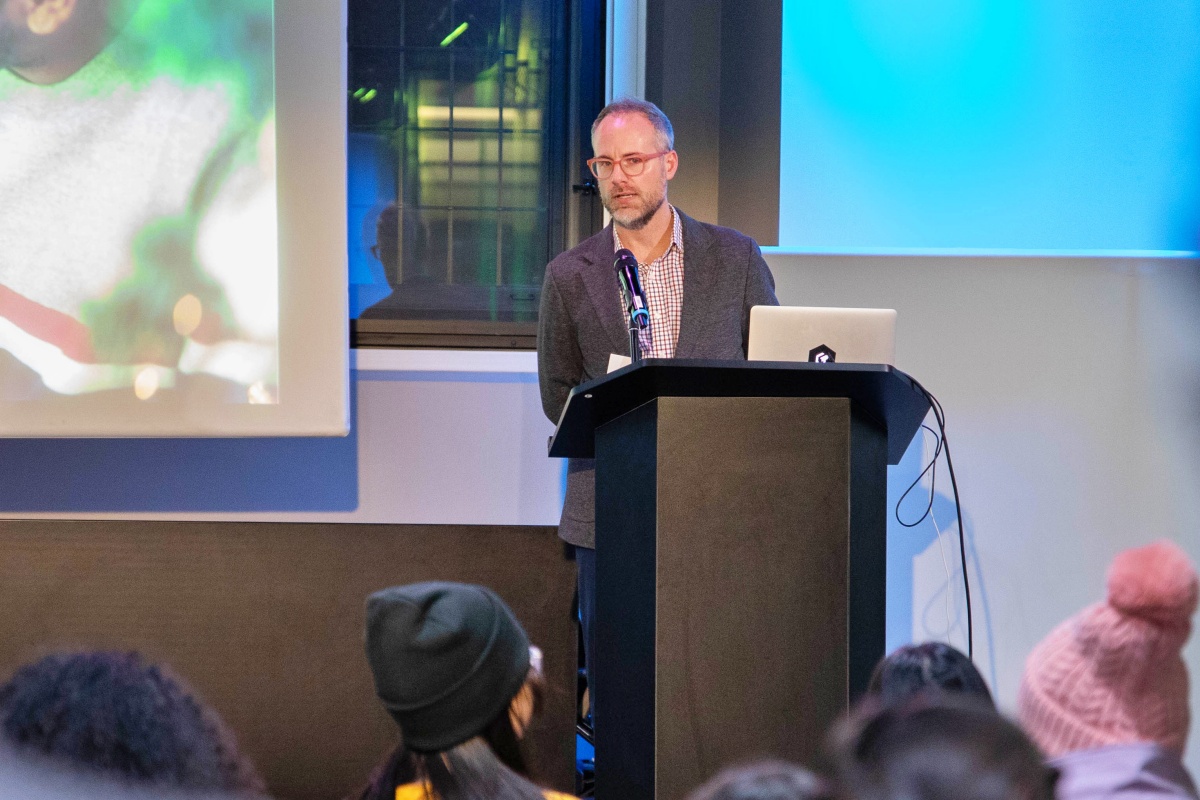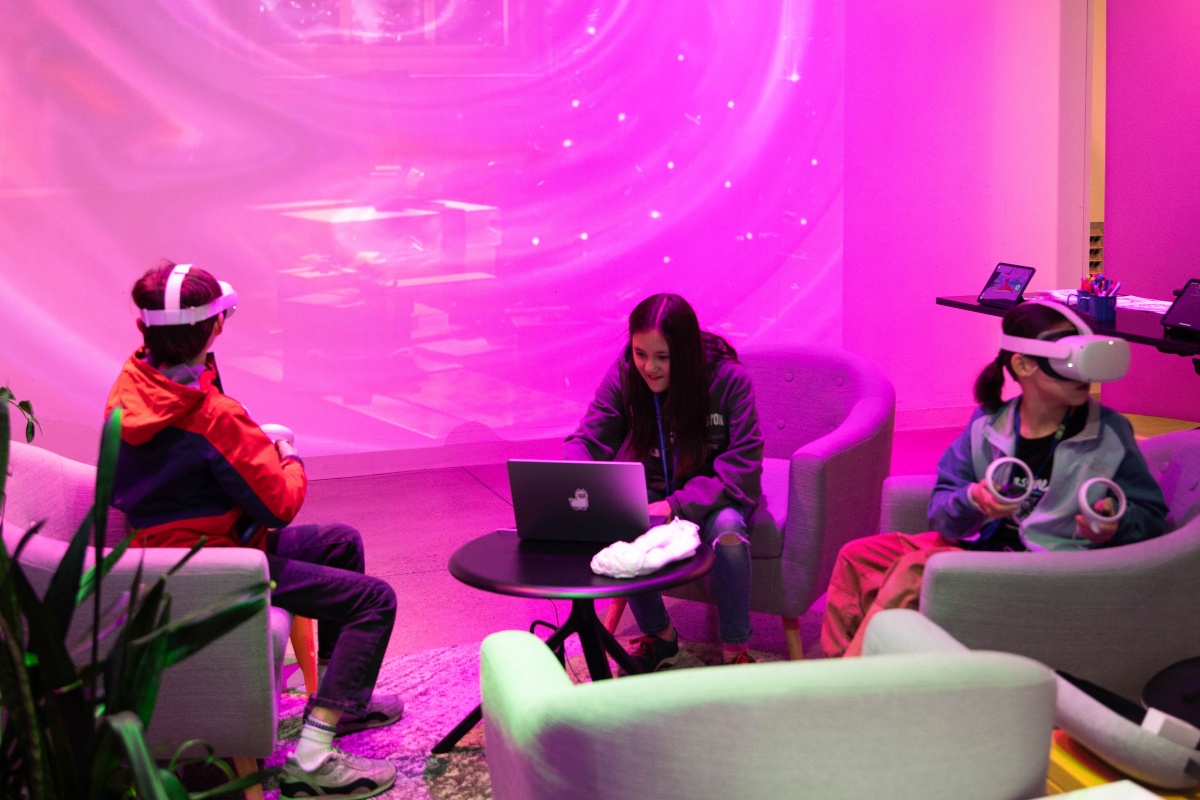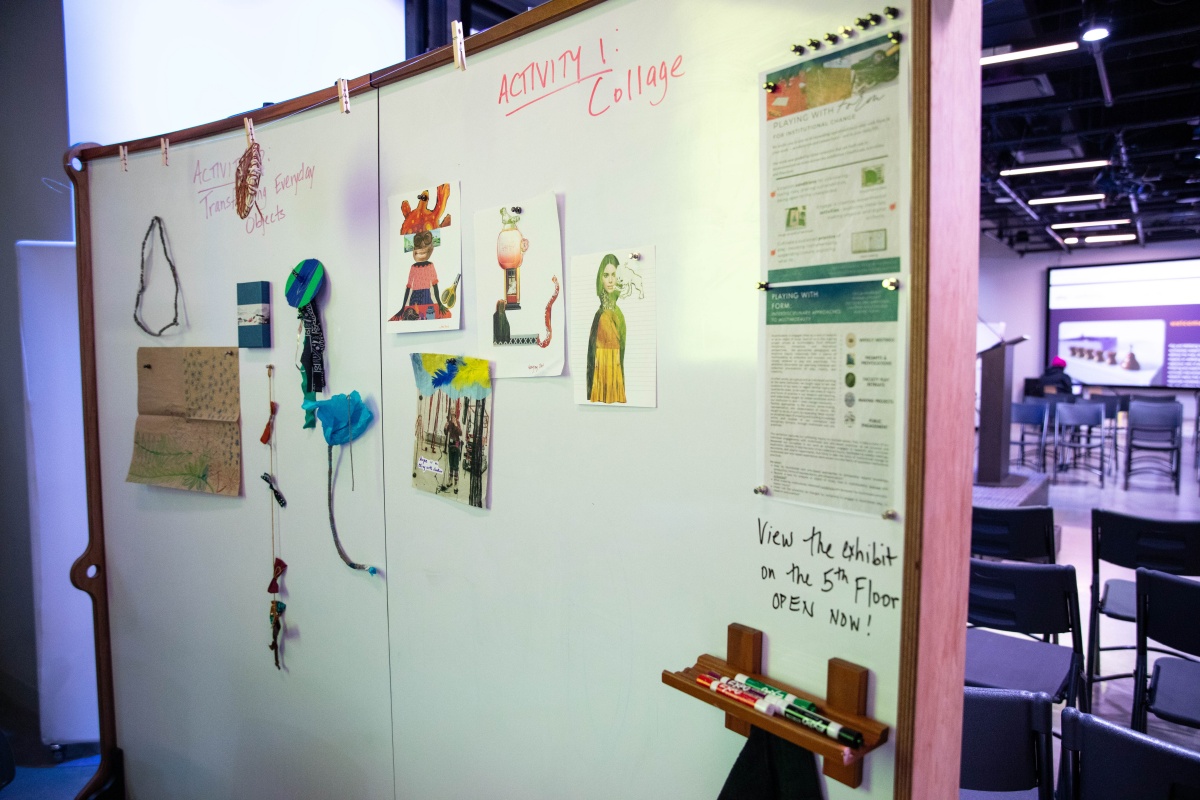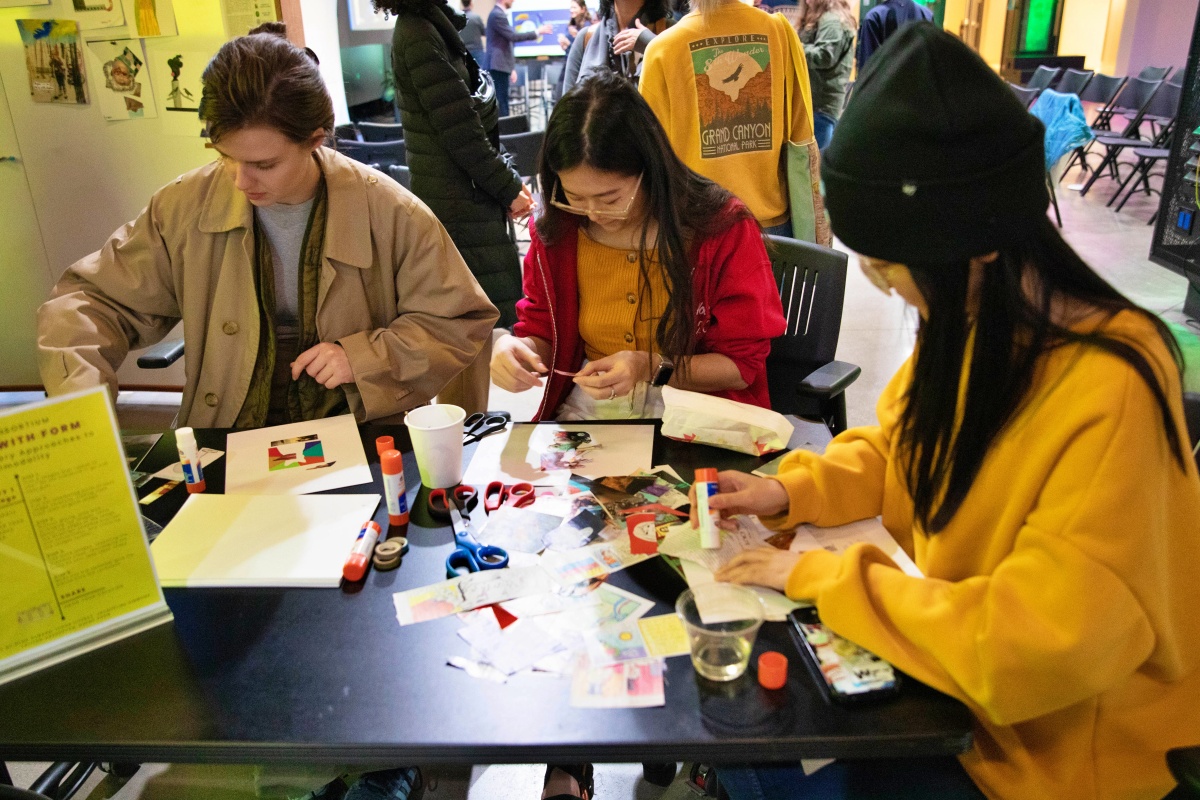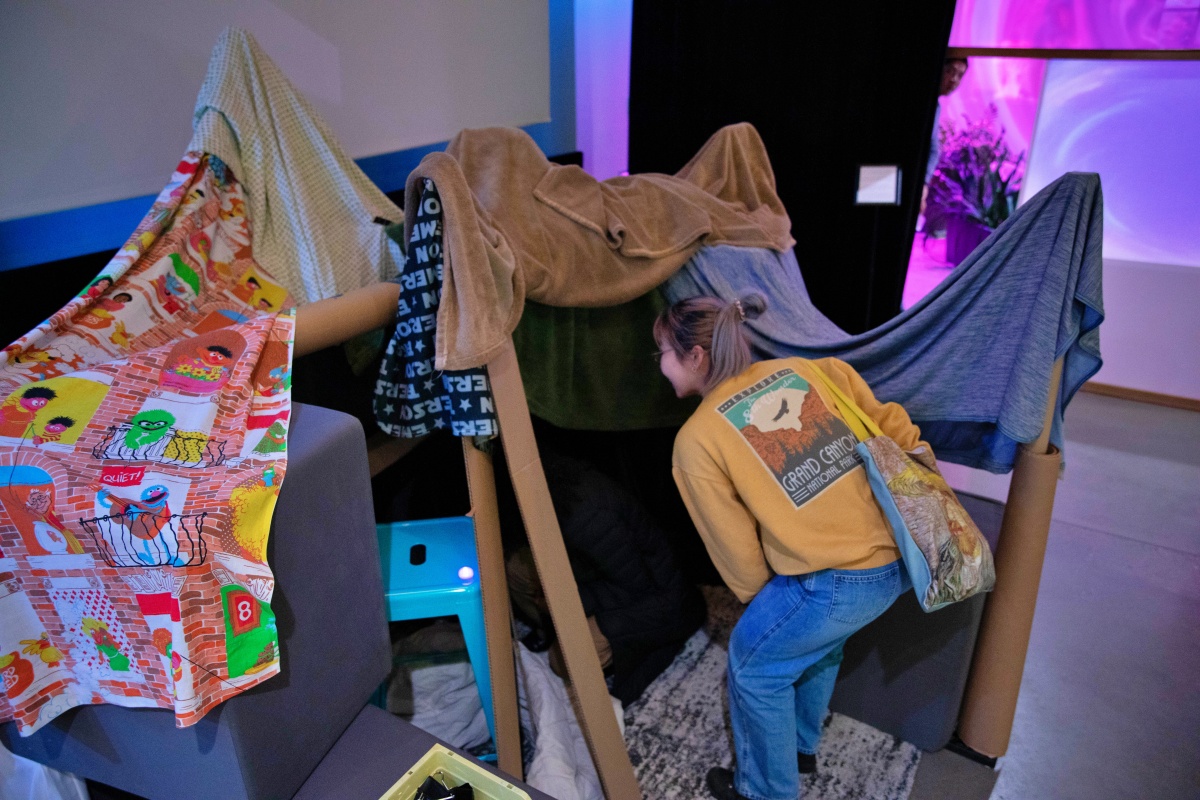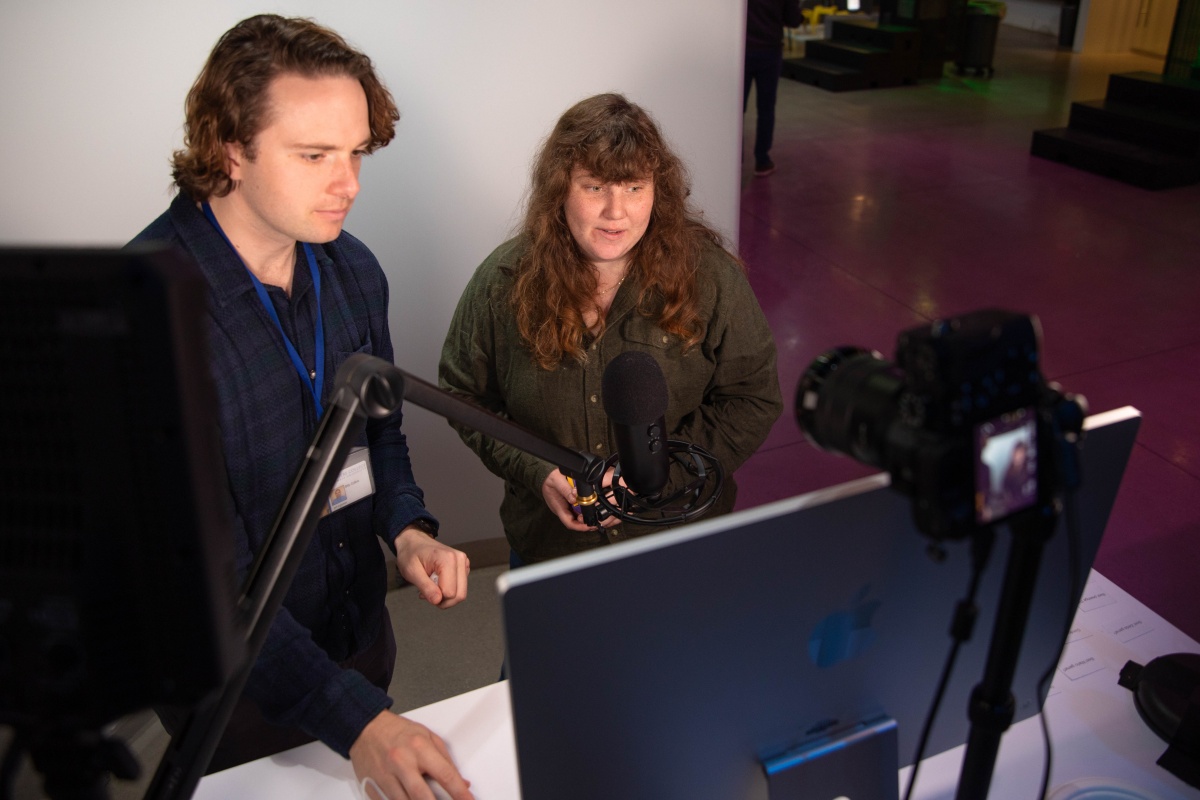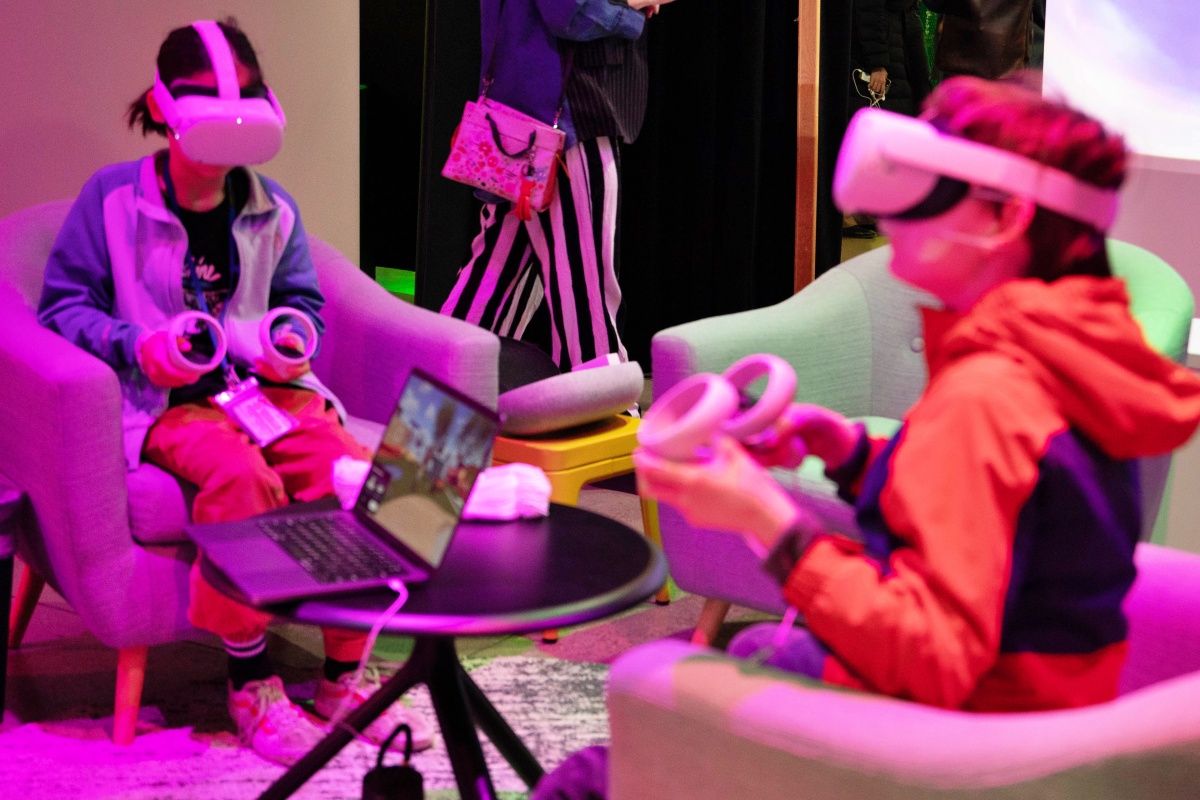Playgrounds or Playstations? Or, perhaps more practically, how can parents balance traditional play with the allure of tech?
While play’s critical role in child development has been well documented for decades, experts in the digital age now grapple with different questions than their predecessors. Enter Play & Wellbeing, the new initiative from Teachers College’s Digital Futures Institute, funded in part by the Social Science Research Council.
“It's about amplifying the role of play in our intellectual, scholarly, pedagogical work,” explained Haeny Yoon, Director of Play Initiatives at DFI and Associate Professor of Early Childhood Education. “You'll see play as a form of scholarship, play as a form of public engagement, play as a form of well-being, play as a pedagogical tool . . . It’s not just children's culture, actually, it’s people's culture.”
DFI’s Play & Wellbeing follows the establishment of the NYC Play Consortium, a partnership between the experts at DFI and the Joan Ganz Cooney Center at Sesame Workshop. The Play & Wellbeing project also builds on the Institute’s dual mandate of service and scholarship by curating resources, discourse and insight on the topic.
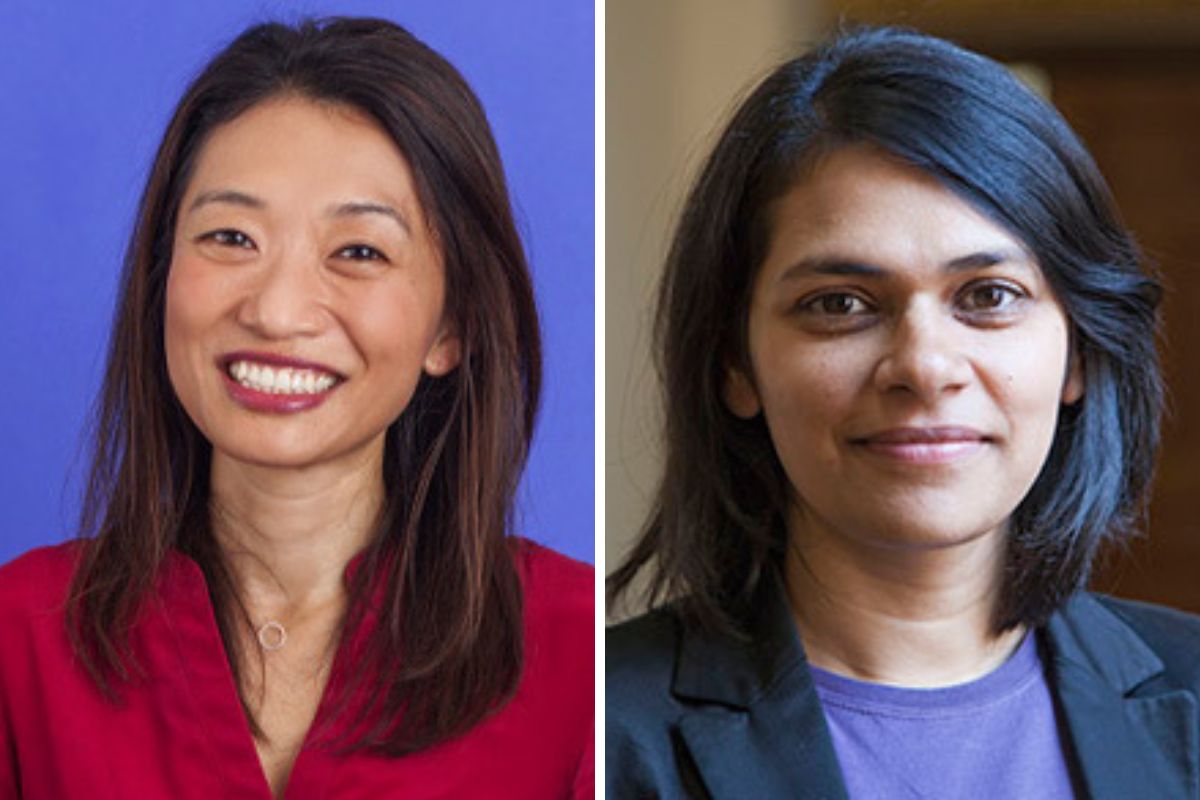
Yoon and Vasudevan. (Photos: TC Archives)
“We want this to be a growing, evolving, and continually responsive resource that people who are interested in the intersection of play and wellbeing can use,” said Lalitha Vasudevan, Professor of Technology and Education, DFI’s Managing Director and TC’s Vice Dean of Digital Innovation.
At the initiative’s launch in the Smith Learning Theater, guests could enjoy everything from a blanket fort and games to virtual reality and multimodal scholarship, a representation of the “many inquiries into and engagements with play that are thriving across Teachers College,” Vasudevan says, which emphasize “the importance of play for lifelong and ongoing engagement across settings.”
In honor of DFI’s broader play initiative, here are a few key takeaways about this scholarship at TC and beyond.
The next phase of research is about guiding practice, according to TC alum Michael Preston (Ph.D. ’10), executive director of the Joan Ganz Cooney Center at Sesame Workshop, who discussed his team’s work on the RITEC and Digital Thriving projects — partnerships with research and design professionals committed to creating digital play spaces that lead to positive and healthy outcomes.
“We try to get folks who design digital experiences for kids to think differently, think bigger, and take responsibility for what becomes the world kids are living in today,” Preston said in his keynote remarks at the launch of DFI x Play, noting the opportunities for additional research on how digital tools can support positive child development. “We should be designing spaces that are good for kids the same way physical spaces can be designed to be good for kids. . .The absence of harm is necessary but not sufficient when we want kids to grow up smarter, stronger, and kinder.”
The future isn’t as bleak as some think. Screen time and tech have the potential to provide benefits to kids, Preston points out — just like Sesame Street proved that television could be educational and positive for children. But part of applying the Sesame Street model to the digital world involves additional work from Preston and his fellow researchers in not only identifying the ways in which kids can be better supported, but also cultivating a sense of responsibility in the tech industry to prioritize young people over pure profit, and even to see designing a more positive digital world as good for people and business.
“Part of what we’re seeing is a greater commitment from brands to their customers through trust and responsibility, and a long-term view,” said Preston, who noted that many of today’s video game developers do not want their products to be addictive. “We’re seeing a greater commitment to the overall health and wellbeing of players. The more we can convince parents to think about the kind of games they buy for their kids, there’s an idea that high-quality, engaging media that reflects their kids' needs and interests are going to rise to the top.”
[Read an essay from Preston featured on DFI’s Play & Wellbeing website.]
Understanding play requires robust, interdisciplinary inquiry. And the researchers affiliated with DFI’s Play & Wellbeing initiative — from TC and at least five other institutions across the globe — are leading work across numerous topics, such as spatial environments, intergenerational play, access, civic engagement, play in/under conflict and more.
“The intersection of play, curriculum, pedagogy, and technology in PK-12 education is a complex and evolving landscape,” writes TC doctoral student Christian Wu, a graduate research assistant for the Play & Wellbeing initiative. “Recognizing the transformative power of play and its synergy with modern technology is pivotal in creating educational environments that cater to the diverse needs and identities of students. As we continue to navigate this dynamic terrain, embracing change and promoting inclusive dialogue can enhance the educational experience, ensuring its relevance and impact in the digital age.”
This ongoing scholarship has been in the works for years. Just check out “Pop and Play” — a podcast from Haeny Yoon and Nathan Holbert, Associate Professor of Communication, Media and Learning Technology Design — that explores everything from “choose your own adventure” stories to The Babysitters Club, reality TV and more. Having premiered in 2019, the podcast is expected to release season four in spring 2024 — when we can expect Holbert and Yoon to dive deeper into Play & Wellbeing.
“Over the years, play has moved from the edges of my work to the center – meaning that the conditions of play, such as creativity, imagination, and inquiry inform the work that I do. It’s not just for kids, but serves as a way for all of us to shift and extend our ideas and our relationship to each other,” explains Yoon. “What we learned post-pandemic is that the very acts of play contribute to our own well-being. In fact, it is a necessary condition for confronting the challenges and issues of everyday life.”

